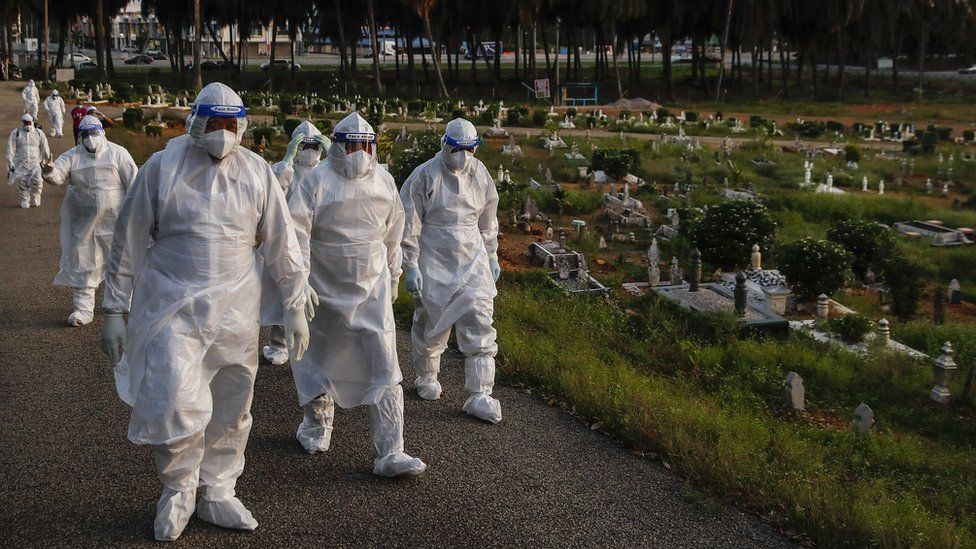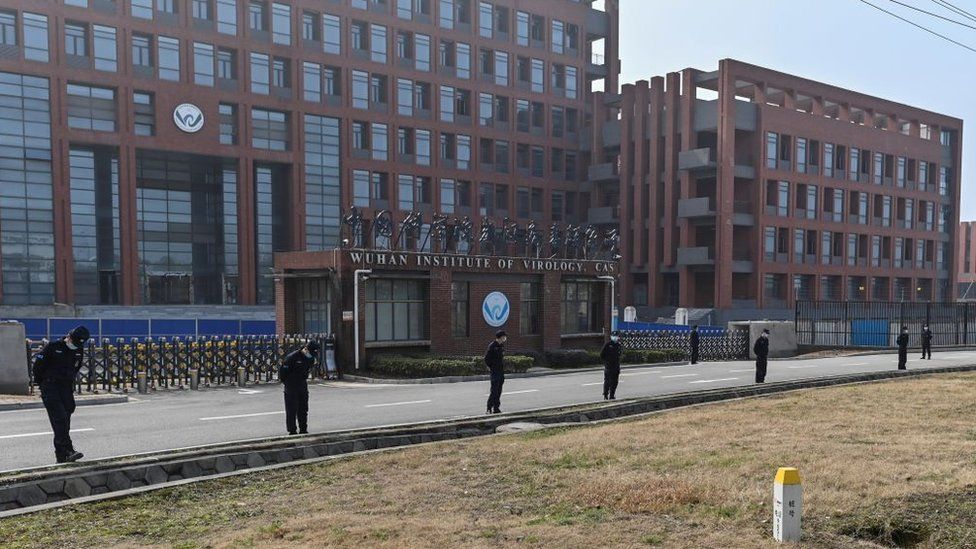
We have now seen what an out-of-control virus can do to our overpopulated, highly interconnected planet. Some 166 million people have been infected in just 18 months.
Officially the death toll from Covid-19 is 3.4 million, though the World Health Organization (WHO) now says the true figure is probably 8 million or even higher.
The US has just announced it is revisiting the origins of the virus, including the possibility that it escaped from a laboratory in Wuhan, despite the WHO saying earlier this year this theory was "extremely unlikely". But we have always known there's a risk a deadly pathogen could do that.
Now a leading expert on biological warfare has called on leaders of the G7 group of leading industrialised nations to consider tighter restrictions, warning loosely-regulated laboratories are a gateway for terrorists.
Colonel Hamish de Bretton-Gordon is a soldier turned academic who formerly commanded Britain's Joint Chemical, Biological, Radiological and Nuclear Regiment. He has examined the effects of chemical and biological warfare at first hand, especially in Iraq and Syria.
"Unfortunately I've spent a lot of my life in places where there are rogue governments which want to harm other people. I think these labs are an open goal for terrorists and others, and it's up to us to make it as difficult as possible for them," he said.
The international controls on centres where dangerous viruses are created and studied have been shown to be disturbingly weak.
Those working with pathogens of different kinds are graded according to their potential biohazard risk level, from 1 to 4, the highest level. Fifty or so laboratories worldwide come into category 4, among them Porton Down, near Salisbury - Britain's top-secret centre for biological and chemical research.
Porton Down is often described as the gold standard for biosafety, and Category 4 laboratories are very tightly regulated. But Category 3 laboratories with softer controls are far more common. Col de Bretton-Gordon says there are more than 3,000 Category 3 laboratories around the world.

The majority are involved in medical research, but that often involves holding and testing viruses like Covid-19. And some are in countries like Iran, Syria, and North Korea, where the motives of the ruling power are regarded with nervousness by much of the outside world.
By comparison with the biological threat, chemical weapons research is much better regulated. The Organisation for the Prohibition of Chemical Weapons (OPCW) was established under the Chemical Weapons Convention in 1997 and includes 193 member countries. It has powers to carry out on-site inspections to ensure that no illegal research and development is under way.
As events in Syria have shown, it hasn't been able to stamp out the manufacture and use of chemical weapons, but the OPCW is active and effective.
The control of biological research and weaponry is less rigorous. The Biological Weapons Convention (BWC), which effectively bans biological and toxin weapons, came into force in 1975. But fewer countries belong to the BWC, and it has never been possible to agree a proper verification regime to make sure members comply with its full terms.
Col de Bretton-Gordon hopes the risks posed by biological centres worldwide will be on the agenda at the G7 leaders' summit in June, and has been lobbying British government ministers to push for tighter controls. His backers include the former head of the CIA, General David Petraeus.

"I think that virtually any US president would want to support this suggestion. The leaders of the world should take this forward. Some may oppose the idea for their own reasons - North Korea, for example. But I think the great majority would want it," Gen Petraeus said.
From 2007-8 Gen Petraeus was the commander of the US-led multinational force in Iraq, a country which under Saddam Hussein certainly developed chemical and biological weapons, even though none were found after the US-led invasion of 2003. His time in charge of the CIA reinforced his fear that biological weapons under the control of a rogue government could pose a very serious threat.
For decades nations have pressed for greater control over nuclear weapons and latterly chemical weapons, and the research that produces them. There have been many deaths from these things: chemical weapons killed thousands of Kurds in Iraq in 1988, and an unknown number of Syrians during the present civil war.
But given that 8 million people may well have died from Covid, the possibility that a virus could escape from one of the 3,000 or more laboratories which are not thoroughly controlled makes the biological threat even more dangerous.

You may also be interested in:
"virus" - Google News
May 31, 2021 at 06:07AM
https://ift.tt/3fxSPgo
Biosecurity warning over loosely-regulated virus labs - BBC News
"virus" - Google News
https://ift.tt/2OagXru

No comments:
Post a Comment